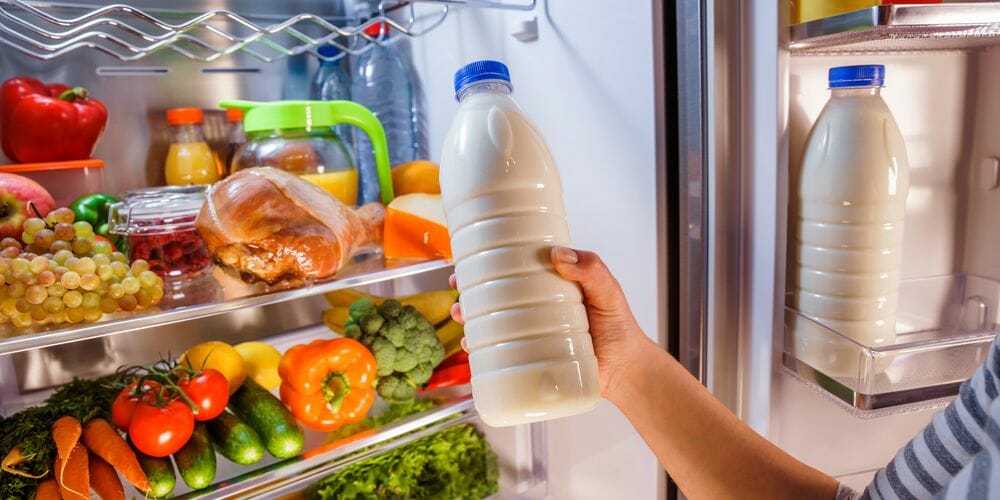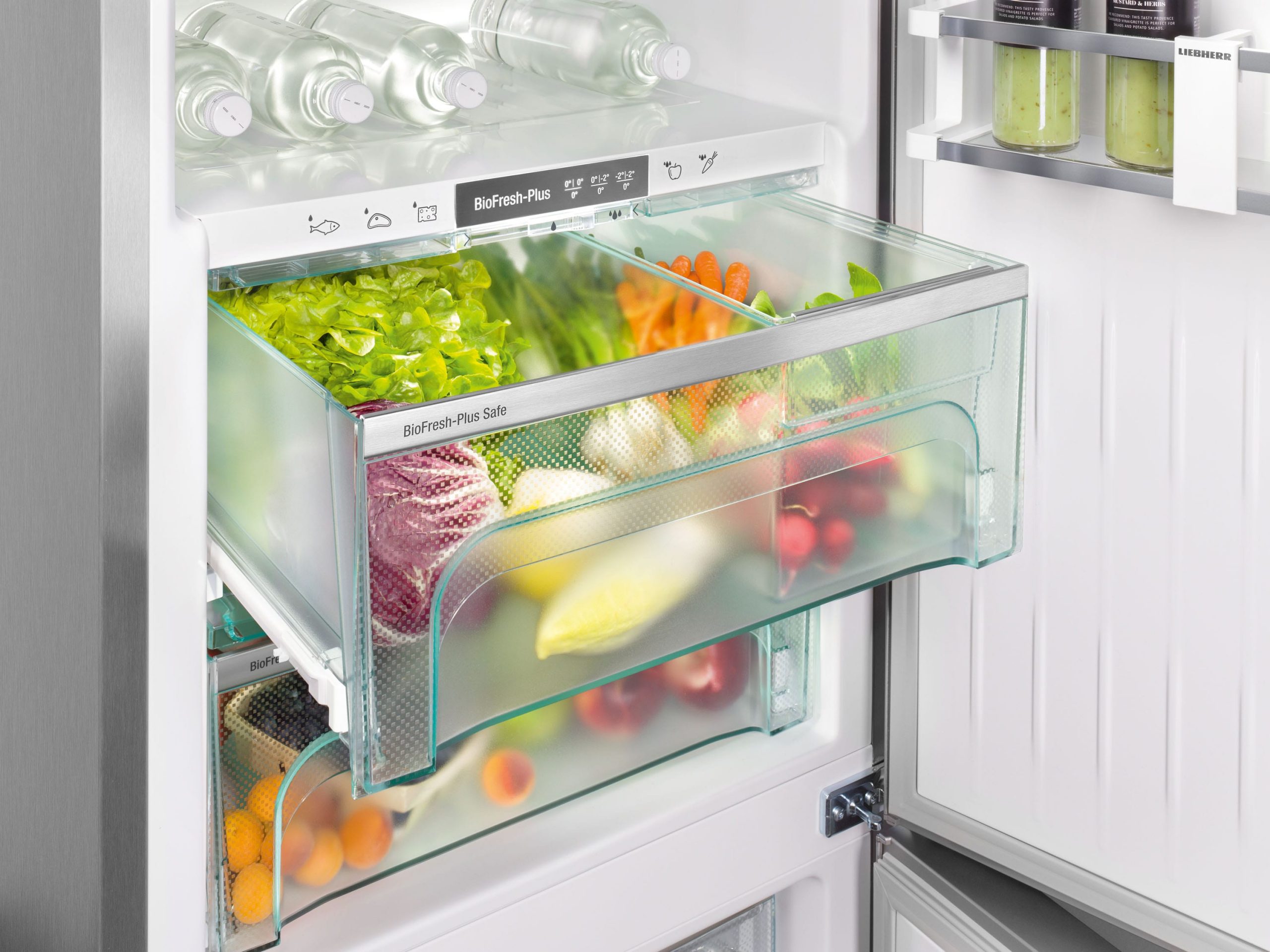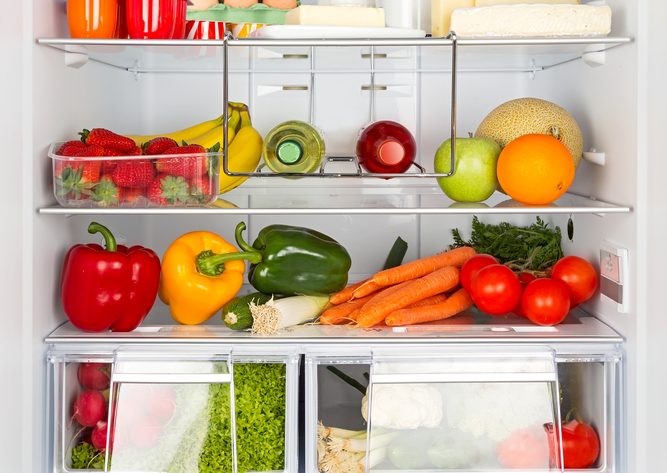For optimal nutrition, the German Nutrition Society recommends five servings of vegetables and fruit a day. The selection should be as varied as possible so that the body is optimally supplied with everything it needs. In addition, the food should be bought ripe and freshly prepared. Certainly not all of you feel like going shopping every day in order to have the freshest possible fruit and vegetables at home. The following tips should therefore help you to store the food properly.

Correct storage in the refrigerator
To preserve the nutrients and To avoid spoiling prematurely, you should keep most food in the refrigerator. The conditions there are ideal because it is cool, but frost-free, and dark. In addition, it is neither too dry nor too damp. The devices also offer different cooling zones that are suitable for different foods.
| compartment | temperature | Perfect for |
|---|---|---|
| Top compartment | 5 to 8 degrees | Jam
cheese butter eggs mustard dressings cooked dishes Drinks Open canned food |
| Middle compartment | 4 to 5 degrees | Dairy products such as cream, quark, yogurt , etc.
Milk |
| Lower compartment | 2 to 3 degrees
|
Meat
Fish Sausage Ham Other perishable foods |
| Vegetable compartment | 8 to 12 degrees | lettuce
cabbage root vegetables Mushrooms Leek Spring onions Herbs |
Furthermore, modern devices have a so-called zero-degree compartment, in which perishable food should stay fresh for a particularly long time. In addition, this area is often divided into a moist (approx. 95% air humidity) and a dry zone (approx. 50% air humidity), so that optimal conditions exist for various foods. This can significantly extend the shelf life.
For example:
- Lamb’s lettuce from 3 to 21 days
- Fresh peas from 5 to 14 days
- Raspberries from 1 to 5 days
- Grapes from 10 to 21 days
- Trout from 1 to 4 days
- Poultry from 3 to 5 days
You can find out how to optimally store the refrigerator in the guide from this kitchen supplier.
How do you store food that is not in the Are you allowed to use the refrigerator?
Certain fruits and vegetables should not be kept refrigerated, otherwise the food will lose its taste or change its consistency. These include exotic fruits, vegetables that contain water, and bread. You can find a more detailed list on this page. Basically, you can use the following principle for fruit and vegetables: local things belong in the refrigeration, exotic things feel less comfortable there.
The motto for these foods is that they should be stored dry and dark. Furthermore, it should not be too warm, which is why a pantry in the kitchen is less suitable for fresh food. A storage room or basement is therefore a suitable place if it is not too damp. It is ideal for apples, pears, potatoes and onions. Important: some varieties secrete the substance ethylene, which influences the ripening process. You should therefore keep the following fruit and vegetables separately:
- Apples
- Apricots
- Plums
- Tomatoes
If you don’t have a cellar but have a garden, you can also store ripe vegetables in a hole in the ground from late autumn. For this you dig a hole that you surround with a sand drainage, which should protect against frost and moisture. You then cover the hole in the ground with a board, which you then cover with straw or leaves. Alternatively, you can bury a container in the ground that can be easily opened with a lid.

Bread
| Food | Storage | Temperature |
|---|---|---|
| Bread box, wrapped in a kitchen towel | Room temperature | |
| Tropical fruits | Fruit basket or bowl | Temperatures from 16 degrees |
| potatoes | Dark room
In a burlap sack or in a wooden box |
Between 4 and 8 degrees |
| tomatoes | Protected from light
High humidity |
Between 12 and 16 degrees |
| Zucchini | light-protected | Temperatures from 16 degrees |
| Aubergines | Dark and dry | Cool, approximately between 12 and 16 degrees |
| Avocado | Brown paper bag (accelerates the ripening process)
Ripe fruits in the refrigerator |
Unripe fruits at room temperature
Ripe fruits at low temperatures |
Tip: If you don’t want to go shopping every day, it is advisable to create a weekly plan. This helps you to have a varied diet. You can also plan and shop more easily. For example, plan dishes that require food that won’t last that long at the beginning of your meal plan. Ingredients that last longer are used later in the week. In this way it is even possible to only go shopping once or twice a week and still eat healthy, fresh food.




